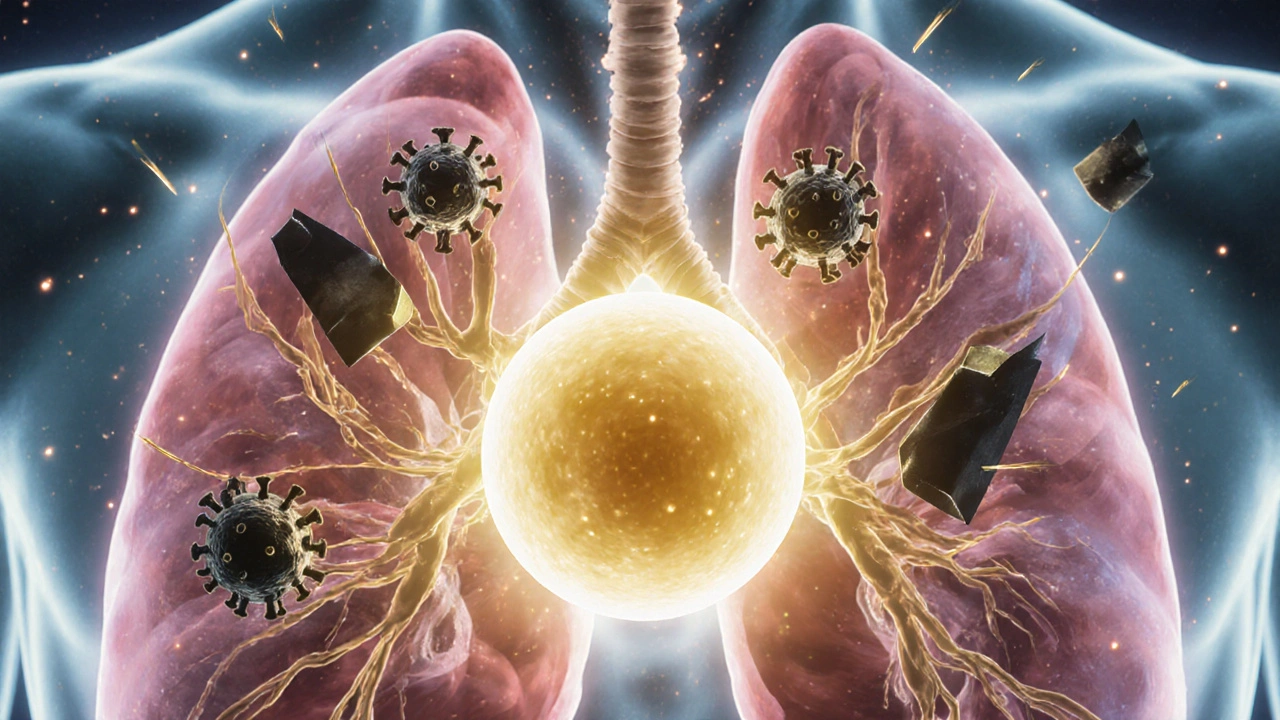Respiratory health: simple steps to breathe easier
Respiratory health matters every day. Your lungs and airways handle everything from talk and exercise to fighting infections. Small habits make a big difference. Below are clear, practical steps to protect your breathing and when to get help.
Prevent infections: wash hands, stay up to date on vaccines like flu and COVID, and avoid close contact when you're sick. Wear a mask in crowded, poorly ventilated places if you are high risk or during outbreaks.
Control allergies: allergy sneezes and congestion make breathing worse and can trigger asthma. Take antihistamines or nasal sprays as advised by your doctor. If cetirizine doesn't work, check our alternatives article for options with less drowsiness.
Know when to see a doctor: increasing shortness of breath, chest pain, high fever, or coughing up blood need urgent care. For long-term symptoms like constant wheeze or chronic cough, ask for tests - spirometry, chest X-ray, or sputum checks - so you get the right diagnosis.
Medicines and quick tips
Antibiotics help bacterial lung infections but won't fix viral colds. Common choices on this site include erythromycin and ciprofloxacin for certain infections - your doctor decides based on the bug and your health. Never start antibiotics without guidance; misuse raises resistance and risks side effects.
Asthma inhalers deliver medicine where it's needed fast. Learn correct inhaler technique: shake if needed, breathe out first, seal lips around the mouthpiece, press and inhale slowly, then hold your breath for a few seconds. Ask a nurse or pharmacist to watch you do it.
Air at home and simple habits
Keep indoor air clean: change HVAC filters, use a HEPA air purifier if you can, and avoid indoor smoking. Maintain indoor humidity around 40-50% to stop mold and dry air problems. Open windows when outdoor air is safe - fresh air lowers virus concentration.
Exercise your lungs: regular brisk walks and activities that raise your breathing rate help clear mucus and strengthen respiratory muscles. If you have chronic lung disease, follow a tailored rehab plan from your healthcare team.
Where to read more: on CFSPharmacy.com find practical guides like our erythromycin article, safe Cipro buying tips, and allergy medication options. Use our contact page if you need help finding reliable info or sources.
Quick checklist: vaccine up to date, no smoking, control allergies, good hand hygiene, clean indoor air, and see a provider for worrying symptoms. Small changes now prevent bigger problems later.
Buying medicines online? Only use pharmacies you trust, check for a licensed pharmacist, read shipping and return policies, and never share prescriptions on public forums. If an online offer seems too cheap or asks for no prescription for antibiotics, it's a red flag. Talk to your doctor or pharmacist first.
If you have asthma or COPD, carry your action plan and emergency inhaler. Learn warning signs of flare-ups and when to call emergency services. Early treatment often avoids hospital visits.
Want personalized help? Use our contact page or browse tag articles on this page for easy-to-follow guides and product reviews. Breathe easy always.
How Calcitriol Affects Respiratory Health and Why It Matters
Calcitriol, the active form of vitamin D, plays a key role in lung defense, reducing infections and inflammation. Low levels are linked to worse asthma, COPD, and frequent respiratory illnesses. Learn how to support your respiratory health with sunlight, diet, and safe supplementation.
Identify When Chest Congestion Needs a Doctor's Help
Chest congestion is a common ailment that often can be treated with home remedies, but certain symptoms may indicate the need for medical attention. Understanding the signs that warrant a healthcare provider's evaluation can prevent complications and lead to quicker recovery. Key indicators include prolonged symptoms, high fever, breathing difficulties, and unexpected body reactions. Knowledge about these aspects ensures timely and appropriate action towards managing chest congestion effectively.

